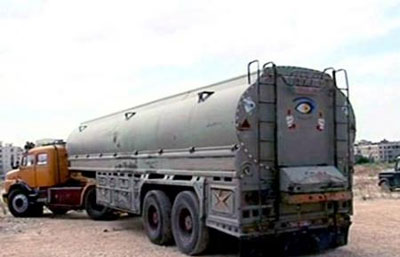 Oil and Mineral Resources Ministry has issued four rules for importing two items-fuel and diesel oil- by private sector and industrialists.
Oil and Mineral Resources Ministry has issued four rules for importing two items-fuel and diesel oil- by private sector and industrialists.
Under the defined rules, approval of the General Establishment for Storing and Distributing Oil Derivatives, widely known as “Fuel Est.”, is a precondition to get import license.
In addition, specifications of imported items must be identical to that of the Syrian standards to a minimum, according to the rules published in the “Tishreen” Newspaper.
The other rule says: “In the case of importing the two items by sea through Lattakia port, the small carriers must be unloaded directly in tankers. However, the big carriers that arrive at Banias estuary must be unloaded in the Establishment’s fuel tanks.”
The delivery of shipments unloaded in the aforementioned places provides that the importers have, first, to pay all fees of receiving, unloading, storing and re-carrying the items to the tankers defined by “Fuel Est.” and the Syrian Oil Company.
“But, if the items are imported by land, Customs Directorate has, monthly, to inform Fuel Est. about imported quantity and the importer,” the rule says.
The ministry took into consideration all necessary measures to be adopted by Customs Directorate as regards empty tankers’ cross of the Syrian borders.
These rules came after the Economy and Foreign Trade Ministry’s decisions No.3 and No.1595 which allow private sector and industrialists to import fuel and diesel oil.
The decisions were taken on the basis of the Cabinet’s Economic Committee’s approval.
Limited time
According to the decision No.3, the Private sector is allowed to import diesel oil till March,3rd, 2013. While the decision No.1595, which would be invalid on June, 30th, 2013, allows industrialists to import the quantity they need from fuel and diesel oil from different sources.
Exceptionally, the said decisions were made because of the ongoing circumstances in Syria caused by unfair economic sanctions imposed on it. They aim to help curb the crisis’ impact on the sectors that depend on these two items.
The sanctions, which ban importing oil derivatives, have forced Syria to depend, for the first time, on its oil production to cover local consumption by 50%.
Basma Qaddour

